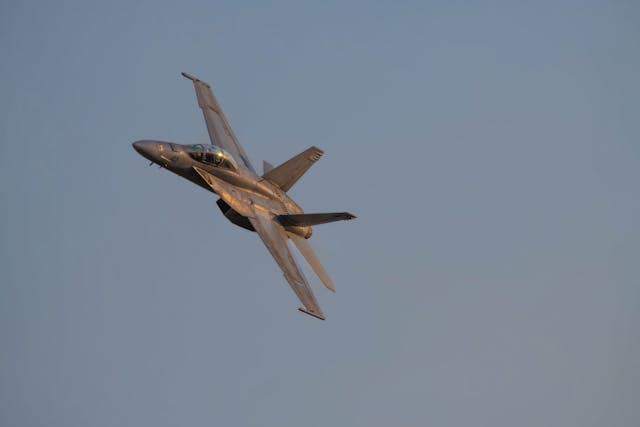Tensions Rise as Israel Strikes Gaza Ahead of Peace Talks
The fragile Israel-Gaza ceasefire is at risk after Israel launched a midnight airstrike in northern Gaza on Sunday. The attack comes just hours before scheduled peace talks in Doha, raising concerns about whether the ceasefire agreement will hold. The Israeli military has confirmed that the strike targeted Hamas militants allegedly attempting to plant an explosive device near Israeli Defense Forces (IDF) troops.
What Led to the Latest Airstrike?

Israel’s military stated that the airstrike was a defensive measure, aimed at preventing a potential attack by Hamas operatives. However, no immediate casualties have been reported.
This incident has further strained the already delicate truce, which began in mid-January 2024 following intense diplomatic negotiations. The ceasefire was initially agreed upon to halt Israel’s military campaign in Gaza, which was launched after Hamas’ October 7, 2023 attack on southern Israel.
Ceasefire Agreement at a Critical Crossroads
The ceasefire’s first phase had resulted in the release of 25 Israeli hostages held by Hamas in exchange for nearly 2,000 Palestinian prisoners detained in Israel. However, the situation remains unstable as Hamas continues to demand further negotiations, while Israel insists on extending the first phase until at least mid-April before proceeding with additional agreements.
Tensions escalated earlier this month when Israel imposed a total blockade on Gaza, cutting off supplies of food, fuel, and medicine for over 2 million people. On Sunday, Israel also announced that it would cut electricity supplies to Gaza, further exacerbating the humanitarian crisis in the war-torn region.
Humanitarian Crisis Worsens in Gaza
With power shortages and supply blockades, life in Gaza has become increasingly difficult for civilians. The blockade has led to severe shortages of drinking water, medical supplies, and basic necessities. Aid organizations have warned that continued restrictions could result in a humanitarian catastrophe if relief efforts are not immediately resumed.
Gaza’s desalination plants, which provide drinking water, depend on electricity that has now been cut off. Generators and solar panels are currently being used to provide limited power, but these resources are depleting quickly. United Nations officials have urged both sides to allow humanitarian aid to flow freely, emphasizing the dire consequences for Gaza’s civilian population.
Peace Talks in Doha: A Last Hope?
Israeli Prime Minister Benjamin Netanyahu confirmed that a delegation will attend the upcoming ceasefire talks in Qatar on Monday. According to a statement from Netanyahu’s office, Israel has accepted an invitation from U.S.-backed mediators to continue negotiations.
Meanwhile, Hamas representatives met with mediators in Cairo over the weekend, where they emphasized the urgent need for humanitarian aid to be delivered to Gaza without restrictions. Senior Hamas leader Mahmoud Mardawi reiterated that resuming negotiations under agreed parameters is essential to achieving long-term peace.
Hostage Negotiations and U.S. Involvement
The hostage crisis remains a major sticking point in negotiations. The U.S. has been playing an active role in efforts to broker a deal, with special envoy Adam Boehler holding unprecedented direct talks with Hamas representatives last week.
Speaking to CNN’s “State of the Union”, Boehler expressed cautious optimism, stating that a deal could be reached within weeks to secure the release of all remaining hostages. He acknowledged Israel’s concerns regarding U.S. engagement with Hamas but emphasized that the talks were necessary to revive the fragile ceasefire.
In addition, U.S. officials have been negotiating for the release of Edan Alexander, a 21-year-old American-Israeli hostage, who is believed to be the last living American in Hamas custody. Special envoy Steve Witkoff called his release a “top priority.”
What’s Next for the Israel-Gaza Ceasefire?
With the Doha peace talks on the horizon, the fate of the Israel-Gaza ceasefire hangs in the balance. The recent midnight airstrike has raised fears that the ceasefire may collapse, leading to further violence.
If negotiations fail, the region could see a resumption of hostilities, plunging both sides into another devastating cycle of war. On the other hand, if an agreement is reached, it could pave the way for long-term peace efforts in the Middle East.
As tensions mount, all eyes remain on international mediators and their ability to navigate the complex negotiations between Israel and Hamas. Will both sides compromise, or is the region heading toward another wave of conflict?
Conclusion
The situation in Gaza remains volatile, with the latest airstrike further complicating an already precarious ceasefire agreement. With humanitarian aid at stake, diplomatic efforts in Qatar and Cairo will be crucial in determining whether the ceasefire can hold or if the region will see renewed violence.
As the world watches closely, the coming days will be decisive in shaping the future of the Israel-Gaza ceasefire. For more updates on the Israel-Gaza ceasefire and Middle East affairs, stay tuned to Documentary Times.
We’re a group of volunteers and opening a new scheme in our community. Your site offered us with valuable information to work on. You have done an impressive job and our whole community will be grateful to you.
Hey there just wanted to give you a quick heads up and let you know a few of the pictures aren’t loading correctly. I’m not sure why but I think its a linking issue. I’ve tried it in two different internet browsers and both show the same results.
Terrific work! This is the type of information that should be shared around the net. Shame on Google for not positioning this post higher! Come on over and visit my site . Thanks =)